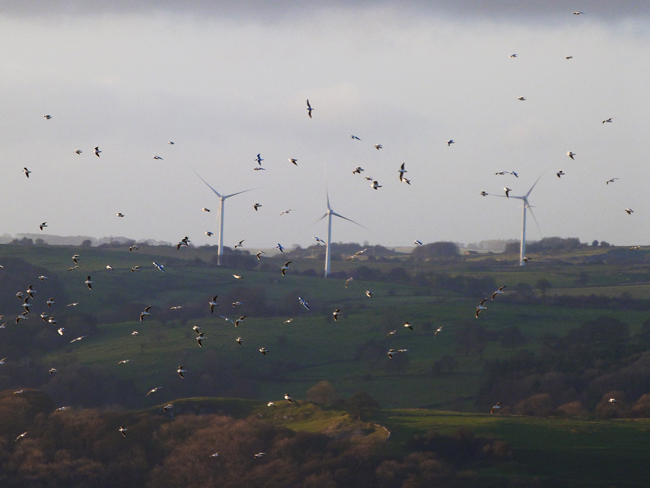Wind farms are far less harmful to birds than first thought, according to the biggest ever study on the subject published in April, because seabirds actively change their flight paths to avoid them.
Researchers used radar and video to monitor seabirds flying near Vattenfall’s Thanet offshore wind farm in the English Channel over a two-year period. They found that birds were present near the turbines in just two per cent of the 600,000 videos shot during the period, and they recorded just six collisions – an average of one every four months. Previously it was thought the number of birds being killed by wind farms was more than double that figure. During the Offshore Renewables Joint Industry Programme (ORJIP) bird collision avoidance study, seabirds were observed to exhibit avoidance behaviour and change their flight paths to avoid the turbines. The study included bird experts and was also wlecomed by the Royal Society for the Proetction of Birds (RSPB). A 100-metre-high wind turbine has been generating power at the headquarters of the RSPB since 2016. The NGO has more than a million members and is one of the largest national wildlife conservation charities in Europe. The Independent wrote in 2016 “that pursuing wind power is not without controversy for the RSPB, as critics of the technology warn that turbines pose a threat to birds, particularly rare species that are already suffering from low numbers or migratory species, as well as to bats. But an article in the journal Nature a few years ago pointed out that turbines killed far fewer birds than other human causes such as buildings, cars, power lines, pesticides and pet cats. The RSPB warns climate change is the ‘single biggest threat’ to birds and other wildlife and says it has been involved in hundreds of wind-farm applications to make sure local bird nesting activity, migratory patterns and flight paths are taken into account”. The Indpendent article concludes with a statement from RSPB director of conservation Martin Harper: “Climate change is the single biggest threat to our planet. This is about our birds and wildlife as well as our way of life”.
Compiled by Reinhold Pape
https://www.telegraph.co.uk/science/2018/04/19/wind-farms-less-harmful-s...
https://www.independent.co.uk/environment/rspb-bird-friendly-wind-turbin...




























